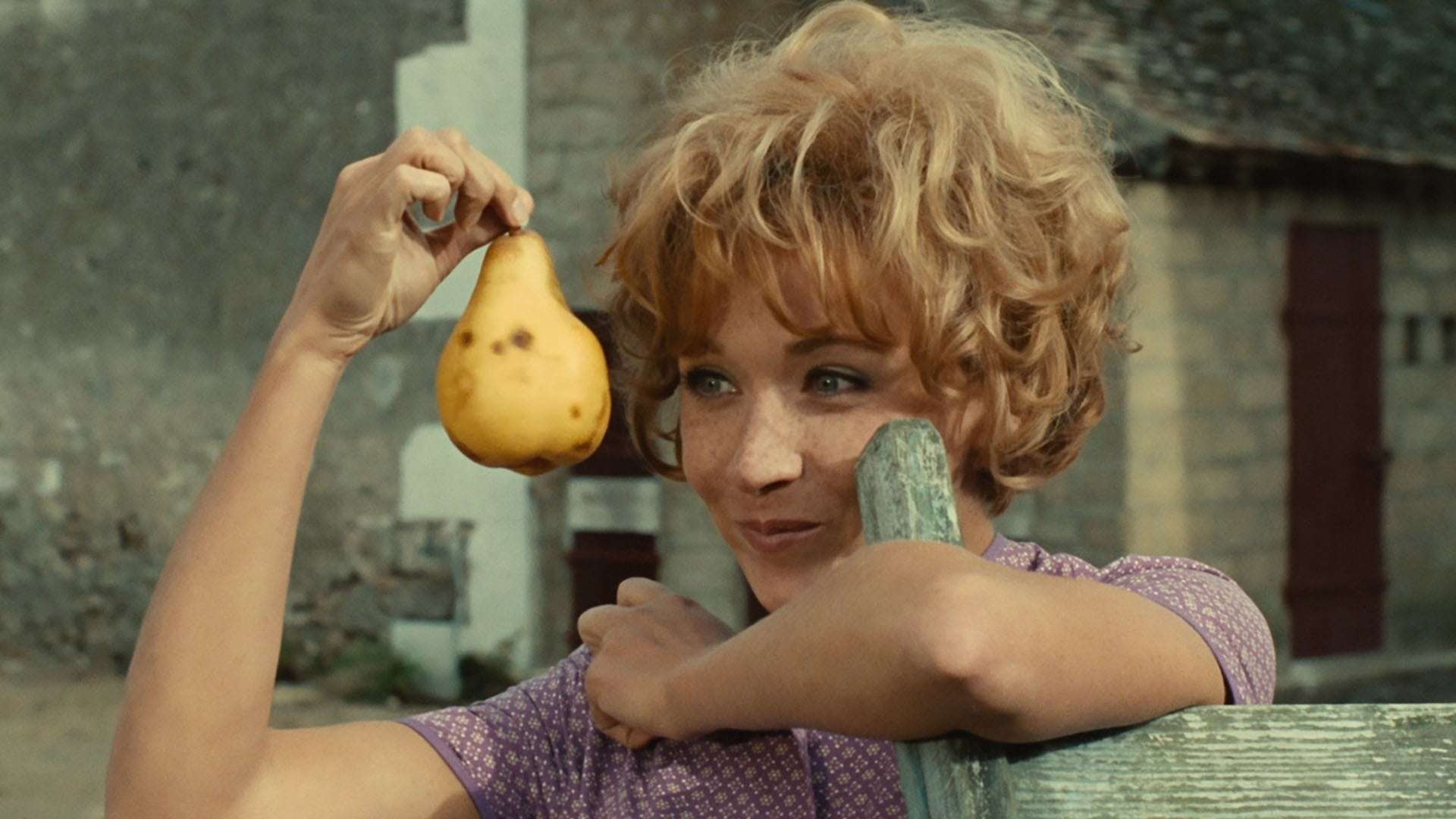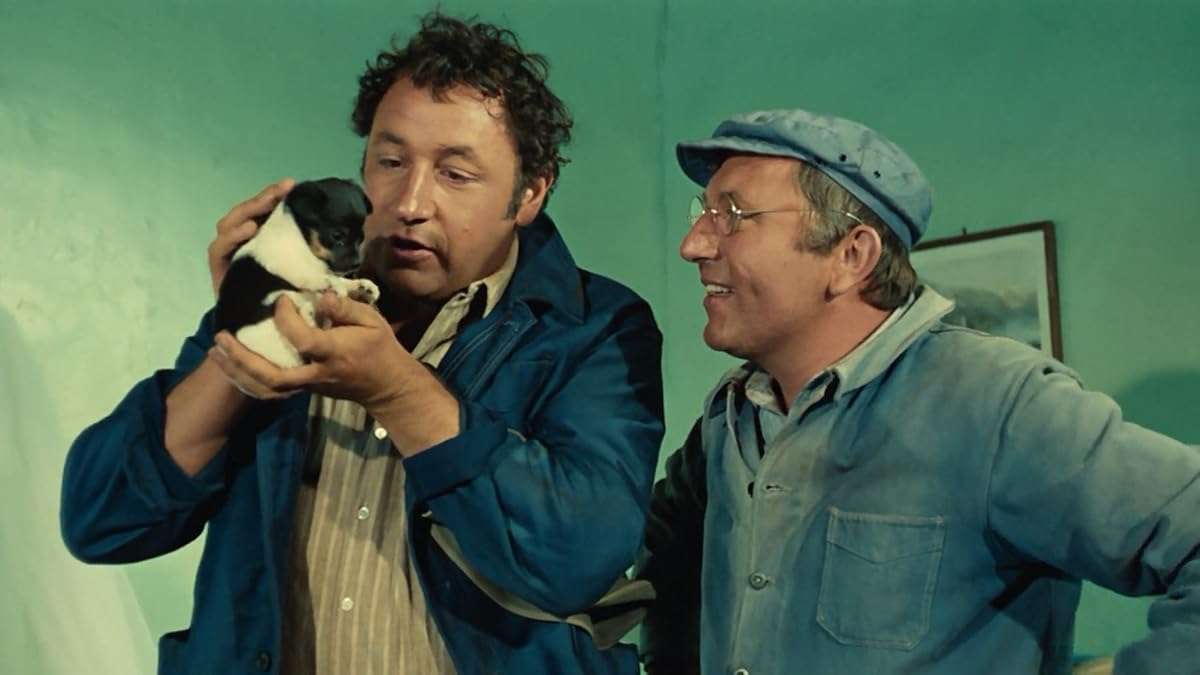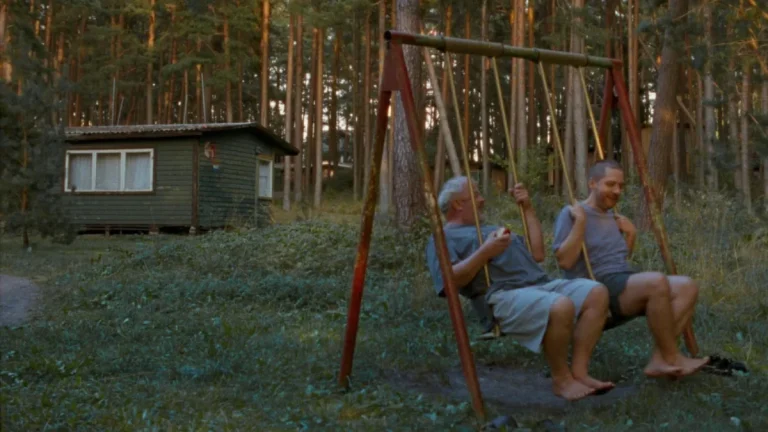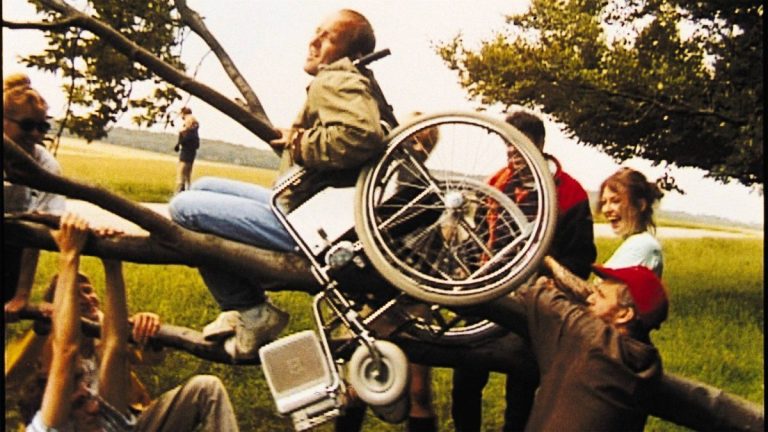In the late 1960s, French director Yves Robert presented a delightful comedy with a powerful message critiquing consumerism and materialism: “Very Happy Alexander” (Alexandre le bienheureux, 1968). Over time, this film has secured a prominent place among the most significant films of the sixties, especially as it marked one of the early important works of renowned French cinema star Philippe Noiret, famed for his role as the veteran cinema projectionist Alfredo in “Cinema Paradiso” (1988). The film’s premise initially appears simple: a man decides to stay in bed and never go to work again.
At first glance, this narrative might seem like a general endorsement of laziness, but that is not the film’s intent. Instead, it presents a unique form of rebellion against routine life, differing from other films of the late sixties and seventies that conveyed similar messages through loud and violent protests, such as student demonstrations and anti-capitalist acts. Rather than addressing the issue in the usual manner, the director chose the serene countryside as the setting, filling the film with calm and picturesque natural imagery that aligns with the story, making it one of the most soothing films ever.
The story revolves around Alexander, a kind and gentle farmer whose greatest desires are to rest, sleep, watch birds in the trees, fish, or play ball with children. However, he is oppressed by his domineering wife and her family, who make him the sole worker on their vast farm, handling everything himself to save money, leaving him no time to enjoy what he loves. He becomes a slave to his wife until she and her parents die in a car accident, making the farm his.

He then decides to free all the animals and livestock, resolves to stay in bed indefinitely, and has his dog serve and shop for him. Alexander’s new lifestyle angers the villagers, who consider work the noblest aspect of life, and they try in every way to get him out of bed before the village children are influenced by him. Their attempts fail, and some men in the village are convinced by his perspective and emulate him. A girl named Agathe, a seemingly lazy person like Alexander, arrives in the village, manages to get him out of bed, and makes him fall in love with her. However, he discovers that she gradually becomes as controlling as his late wife, leading him to flee just before the wedding.
The film’s message can be summarized as emphasizing that a person’s primary goal should be achieving personal happiness and not merely following the herd out of embarrassment to admit dissatisfaction with life. The choice of the countryside as the film’s setting is a brilliant symbolism in itself. In other films addressing similar issues, city life is portrayed as consumerist and relentless, with protagonists seeking respite in the tranquil and simple countryside. However, in this film, rural life is depicted as extremely exhausting, with farmers rising at dawn and working various tasks throughout the day until nightfall, only to repeat the cycle the next day.
This lifestyle represents societal pressure contrasting with the serene and beautiful surrounding nature, which Yves Robert masterfully captured. Nature and animals coexist happily and harmoniously, indifferent to the harsh life humans impose on themselves. This idea is reflected in Alexander’s loyal dog, as he trusts only his dog; the animals’ lives in the film symbolize the happy and peaceful life Alexander seeks. This is evident in the scene where Alexander releases the animals from the barn after returning from his wife’s funeral, symbolizing the freedom he feels, and in the final scene where he escapes the village, and we see birds flying in a magnificent scene that fully conveys the film’s concept.
Another intriguing aspect of the film is the sudden death of Alexander’s wife and her family in a car accident while they were on their way to another person’s funeral, highlighting that life is unpredictable. They never enjoyed life, working and saving money aimlessly. This reflects how modern life’s general concept has been distorted; people no longer save money to achieve their dreams and happiness but save without purpose or ambition until they die suddenly without truly living.

The film also indicates that society imposes this lifestyle; when Alexander decides to live as he wishes, the villagers oppose him, even though he hasn’t harmed anyone. They see someone rebelling against the system from his bed, even though they are all tired like him and wish to emulate him, but don’t dare. Some villagers who decide to follow his example do so with admiration, as if they have discovered something new—that a person has the right to take a break when tired.
Some might think the film portrays a negative image of women due to the two female characters presented: Alexander’s wife and his second lover. However, from my perspective, that wasn’t the film’s intention; they were presented as symbols of commitment and family building. The best example is Alexander’s lover, Agathe; she is cheerful and idle like Alexander, but transforms during the wedding phase into a version of his previous wife because she was about to become part of a family and take on responsibility.
I want to commend the performance of star Philippe Noiret, who delivered a remarkable role in his career, portraying a character with contrasting emotions—a person who loves calm and rest yet becomes angry and fierce towards anyone who tries to disturb his peace. I also want to praise the music of renowned French composer Vladimir Cosma, which added a sense of joy and sometimes magic throughout the film’s scenes, giving it a special spirit. In conclusion, “Very Happy Alexander” is a delightful and charming film that addresses an important issue through an innovative and highly enjoyable narrative.



![Starman [1984]: A Sweet, Tender & Heartfelt Tale of Love & Sympathy](https://79468c92.delivery.rocketcdn.me/wp-content/uploads/2018/09/Starman-768x432.png)
![The Ripper [2020] Netflix Review – A Flawed Yet Reasonably Effective True-Crime Docuseries](https://79468c92.delivery.rocketcdn.me/wp-content/uploads/2021/01/The-Ripper-2020-768x432.jpg)
![Point Blank [1967] Review – A Candid and Visually Inventive Post-Noir Masterpiece](https://79468c92.delivery.rocketcdn.me/wp-content/uploads/2019/11/Point-Blank-1967-768x576.jpg)


![Hit Big [2022] ‘PÖFF’ Review – A Comedic Crime Caper with Shabbiest Characters](https://79468c92.delivery.rocketcdn.me/wp-content/uploads/2022/11/Hit-Big-2022-768x432.jpeg)